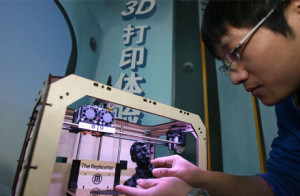Adapting to the new frontiers in the manufacturing industry
Increasing operational effectiveness generally translates to process improvement initiatives.
According to ESI International, a global-focused training company, the best steps towards an efficient project community is through recognition of the most definitive drivers at a time when PM and project portfolio management is gaining prominence.
Over the past decade, the manufacturing sector has witnessed a complete transformation across the globe. With large developing economies effectively handling competition against mature markets and transforming into first-tier manufacturing powerhouses, the changes have been unprecedented.
Manufacturers have also experienced spontaneous growth in unstable markets around the world and skilled talent has remained in short and unbalanced supply in different regions.
The entire evolutionary process has seen manufacturing organisations focus on demonstrating business value, with project governance and metrics playing an increasingly important role in keeping management informed about project performance and its impact on the bottom line.
In an industry as diverse as manufacturing, project management as a management discipline has emerged as an important channel in highlighting much economic activity.
Increasing Strategic Role of Project Management
Manufacturers in recent years have discovered that project management’s reliable methodologies fit together ably with the overall processes and in every area of production. As business leaders continue to adapt to the increasing market volatility, project management is playing a big step closer to business strategy.
A fully aligned programme and project portfolio management strategy includes the entire organisation, mandating project execution at every level and aiming to deliver value at each step.
Best Steps to an Efficient Project Community
Recognising the most definitive drivers that critically impact the skills requirements and competencies development of the project community in the manufacturing industry is essential. Identifying these four drivers and implementing the right measures respectively is paramount to achieving project success.
Production Pressure
Given the dynamics of the manufacturing industry, the pressure to produce, to gain or retain competitive advantage and expand business operations has resulted in a surge of capital projects planning, scheduling, cost, and people management. In order to be effective, manufacturing organisations will need to apply their limited resources judiciously and focus on projects that yield the highest return on investment. Project portfolio management informs and guides capital decisions through a structured approach to project prioritisation and governance.
Globalising the Business
Today’s customers are constantly changing, and as they pursue growth in new global markets, manufacturers will need to stay in proximity to the market. Often this means doing business in unfamiliar parts of the world, bringing added uncertainties and complexities to operating models.
With multiple businesses stretched across disparate geographies, the decision-making process can quickly become disjointed, creating challenges in ensuring that the overall business strategy is being supported and executed globally.
As each region develops its own operating model with independent structures and processes; business leaders will need to take steps in ensuring that the global business strategy remains and serves as the foundation for regional decision-making.
Supply Chain Vulnerability
Across Asia, manufacturing companies are increasingly leveraging supply chains with the latter’s growth getting increasingly complex, extensive and vulnerable. Concerns over transportation costs, shifting regulatory environments, intellectual property rights and even natural disasters are causing many manufacturers to re-examine their supply chain strategy to mitigate risks.
As a result, manufacturers are seeking to diversify their suppliers across geographies. Since sourcing and procurement have been likened to the tip of the spear as they relate to managing supply chain risks; ensuring consistent practices across geographies is critical to driving a cohesive strategy.
Operational Effectiveness
Balancing aggressive cost reduction targets with increased expectations on production is the biggest challenge today’s manufacturing organisations are facing. Manufacturers are also under increasing pressures to eliminate defects and increase reliability on utilising ageing assets.
Further complicating the issue is the decline in human capital availability caused by the re-allocation of resources to meet regulatory requirements, and the rapid retirement of senior personnel and project professionals. Increasing operational effectiveness generally translates to process improvement initiatives and/ or the implementation of new technologies.
Either way, improving operational effectiveness ultimately depends on improving project effectiveness.
The Road Ahead
According to ESI’s Asia Pacific Project Management Salary Survey 2015, project leadership and communication and general management skills, were the top two competencies ranked by respondents as critical to career advancement in the manufacturing industry.
Similarly, hiring managers across the region also looked for the same skillsets when recruiting project management professionals. Mismanaged resources leading to failed projects and Talent shortage in the project management space are the top two project management challenges faced by the manufacturing industry. Enhancing capabilities to gain edge in an increasingly competitive global environment has become a prerequisite for manufacturing organisations.
Due to the dynamic business environment that organisations are operating nowadays, it is absolutely pertinent to lay emphasis on the manufacturing industry drivers and understand their impact on project performance. Managing capital project risks through the development of effective project portfolio management capabilities, maintaining operational alignment with the core business strategy, building consistent organisational capabilities and a clearly defined project management methodology are the foundations to achieving success in today’s manufacturing industry.



